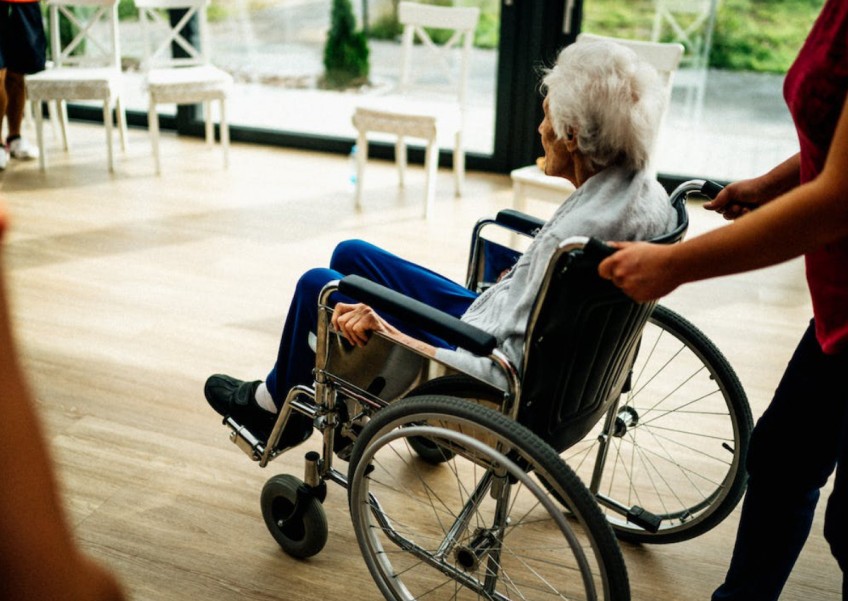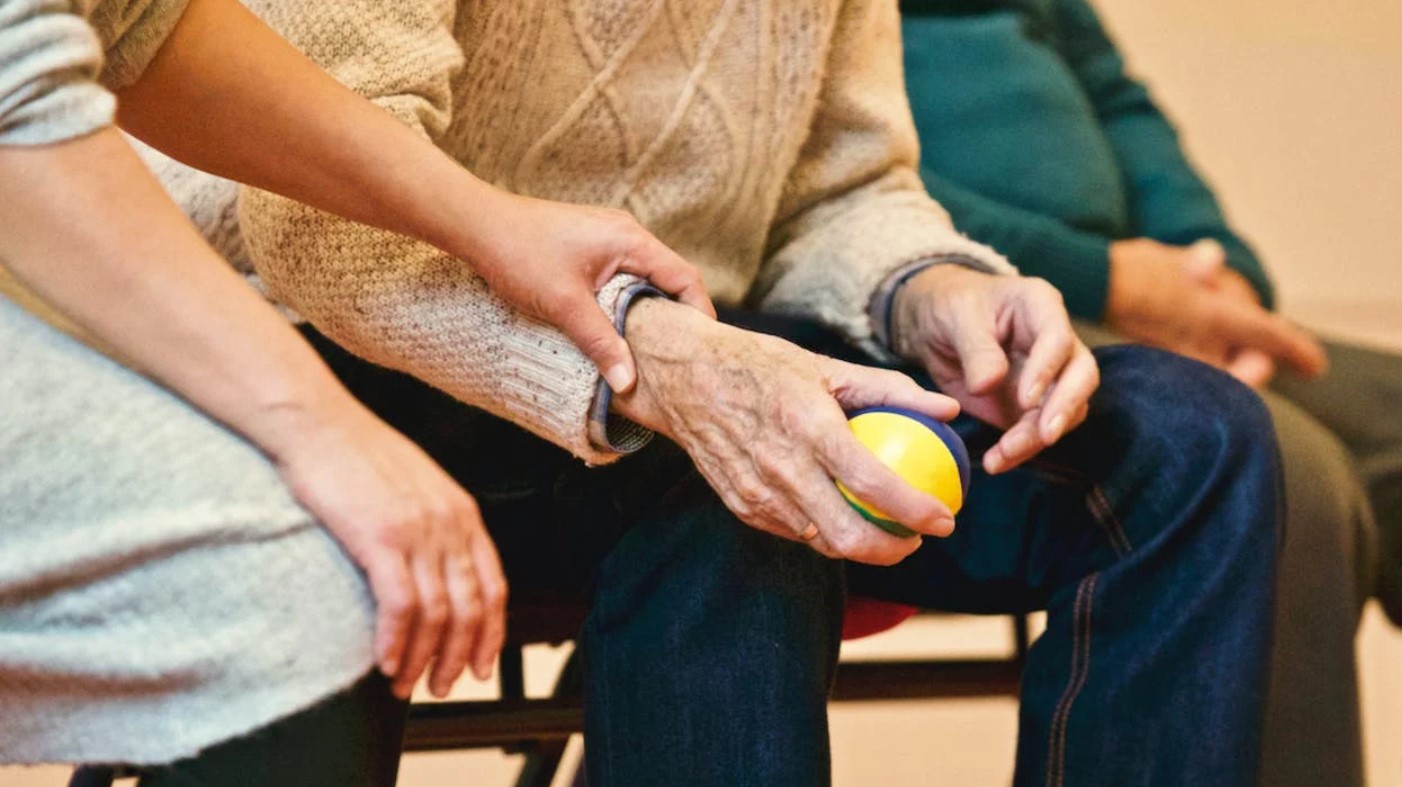Caring for a loved one who just had surgery? Here's what you should avoid doing


When someone we care for undergoes surgery, our first instinct as a caregiver is to do everything in our power to make them feel comfortable and help them recover as quickly as possible. However, despite good intentions and our eagerness to help, we may do things that hinder and delay their recovery process.
To help your loved one recover more quickly from their operation, here are things that you should avoid doing as a caregiver.
A common mistake that caregivers make post-surgery is helping their loved ones shower too soon.
It may take some time before your loved one is able to safely get their stitches or incision wet post-surgery. The duration differs depending on the surgery, but doctors typically recommend keeping your wound dry for the first 48 hours.
For more serious surgeries, such as those involving internal organs or bone repairs, it may be necessary to wait longer. If your loved one is feeling uncomfortable and demands to shower sooner, you may give them a sponge bath or lightly wipe them down with a warm towel and water while avoiding the wound area.
Once the doctor gives the green light to get the entire body wet, it is advisable to opt for a shower instead of a bath since the wound can get tender after soaking, increasing the chances of it reopening. On that note, you should also check with the doctors or nurses if your loved one will need a waterproof dressing for their wound. Avoid applying soap and bath products directly on the wound while it is healing. After showering, delicately pat the area dry with a clean towel.
Many individuals may face mobility issues post-surgery, particularly those who underwent joint or bone surgery which may significantly limit movement during recovery. This can have an impact on their ability to use the toilet independently. Besides visible physical limitations, individuals may not be 100per cent alert and have slower reflexes while the anaesthetic effect is still wearing off or under the influence of other prescription drugs.
As caregivers, it is important to not overlook this aspect. For those who need physical assistance with toileting, provide the necessary support while also respecting their privacy and dignity. Even when they seem fine and are able to use the toilet independently, it helps to pay close attention in case of emergencies or accidents.

Proper nutrition is crucial to the post-surgery recovery process. However, many caregivers often overlook the importance of diet post-surgery. Having a balanced diet rich in protein, vitamins, and minerals can help to reduce stress on the body, promote healing, and minimise the risk of complications.
When it comes to a nutritious post-surgery diet, there is no one-size-fits-all solution. The best diet for your loved one depends on the type of surgery they underwent and any pre-existing conditions.
For example, individuals with kidney or liver conditions will have to watch their protein intake, while those who had bowel surgery may need a low-fibre diet to aid in the digestive tract recovery process. While drinking plenty of fluids is generally good for you and prevents dehydration, there are certain surgeries that may require the individual to refrain from drinking water shortly after the procedure, such as those involving the abdomen, head or neck.
Always follow the doctor’s instructions. When in doubt, check with the relevant medical staff or even consider consulting a registered dietician for specific advice.
Check out our resource on recommended post-surgery foods to learn more about the type of nutrition your loved one needs for a speedy recovery.
A common misconception is that one should avoid moving about after surgery.
This could be true in the short-term for specific procedures like spinal, joint replacement, and abdominal surgery, to avoid placing further stress on the affected areas and prevent complications such as bleeding. However, rehabilitation is an essential part of post-surgery recovery. The key is to resume activity in a safe and gradual manner.
It can be difficult at first. Caregivers and family members may discourage their loved one from exercising as they express pain or discomfort. However, targeted exercises recommended by doctors or physical therapists can help to:
As you take steps to encourage your loved one to stay active, make sure that you do not push them too quickly as well. Rushing the recovery process can lead to complications and setbacks. Stick to the rehabilitation programme and follow the post-operative instructions provided by the healthcare team regarding movement restrictions for a safe and smooth recovery.
In addition, pay close attention to your loved one’s symptoms and progression. Report any changes to their doctor or healthcare provider to help identify any potential complications early on and prevent them from becoming more serious.
Once your loved one has made considerable progress, you can then encourage them to begin physiotherapy or to incorporate light exercise into their daily routine. Click here to learn more about elderly-friendly exercises, such as light stretching and callisthenics that can be done at home.
Recovering after surgery is not always a linear process. Even with the best care, surgery wounds may not always heal as well as we hope and complications can arise.
While it is normal to have redness, discomfort, and swelling around the surgical site, it is concerning if these following symptoms are present:
Besides wound care, common post-surgery complications include bleeding, blood clots, and pneumonia.
As caregivers, we should look out for signs and symptoms of common post-surgery complications. If you suspect that your loved one is showing signs of post-surgery complications, alert your loved one’s doctor or care team as soon as possible.

Surgery can be a stressful and emotional experience for both the patient and the caregiver. As caregivers, it is easy to become so focused on addressing the physical needs of our loved ones that we forget about the importance of emotional support.
Here are some ways to support your loved one emotionally as they recover from a surgery:

Caring for a loved one after surgery can be a demanding and stressful experience, and it’s easy to feel overwhelmed. Here are some things you can do if you are experiencing caregiver stress and fatigue.
The golden rule in caregiving is to always take care of yourself first. This may sound selfish at first, but it is the only way you can deliver the best care to your loved one. Even though you may be caught up with caregiving most of the time, it is important to dedicate pockets of time throughout the day to rest, unwind, and do something that helps you recharge.
It can be as simple as a 5-minute stroll, reading a book, or knitting, to prevent caregiver burnout, and this is on top of ensuring you get enough rest and eat healthily.
Just as how it takes a village to raise a child, caring for a loved one post-surgery also requires teamwork and everyone’s concerted effort. Reach out to family and friends and find out how everyone can help out and contribute to the recovery process.
Even if they are unable to visit in-person to physically assist in the recovery process, an occasional call to check up on your loved one can help to lift their spirits and motivation. Other ways they can help are to manage your loved one’s finances and insurance, taking administrative matters off your plate while you focus on attending to your loved one’s daily care needs.
ALSO READ: Post surgery care at home: 12 ways to boost recovery after surgery
Respite care is a service that provides temporary relief for caregivers. With respite care, you can get short-term care support for your loved ones, allowing you to take a break from caregiving to attend to your own needs, from as short as several hours a day, to a few weeks at a time. At Homage, caregivers are professionally trained to support activities of daily living, medication reminders, staying active, night care, and more, from as short as one-hour to round-the-clock care.
Caring for a loved one after surgery may be challenging, but it is always rewarding and heartwarming to know you played a part in your loved one’s recovery and witness them get better day by day. Now that you know the common post-surgery mistakes to avoid, you can feel more confident when caring for a loved one post-hospitalisation.